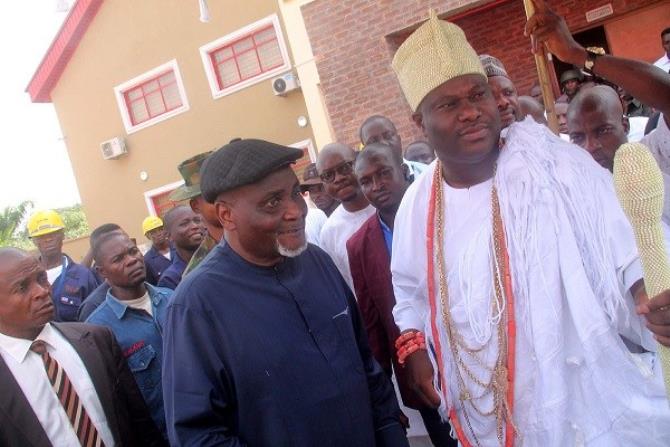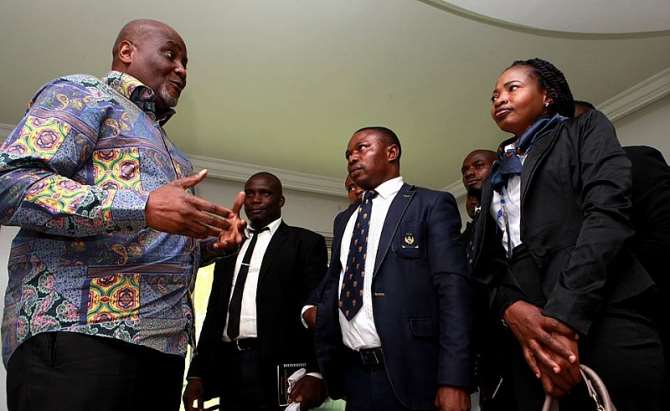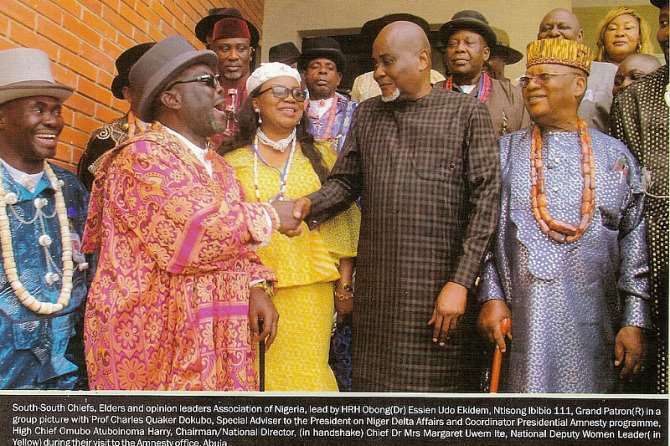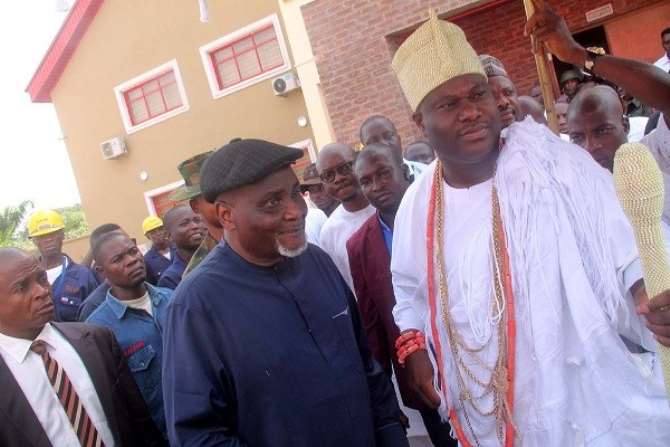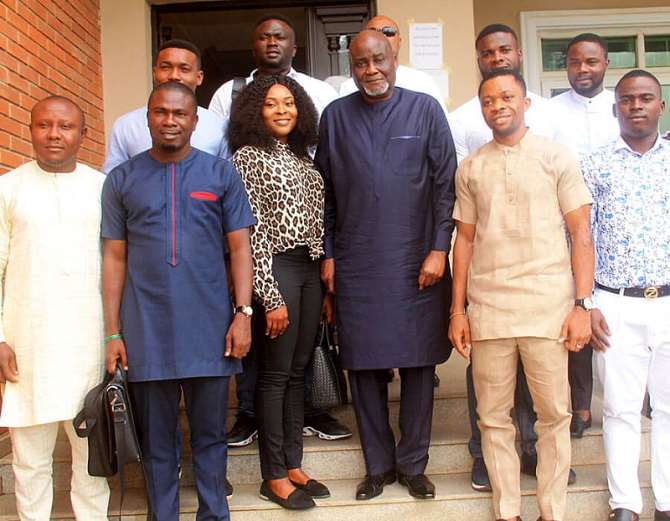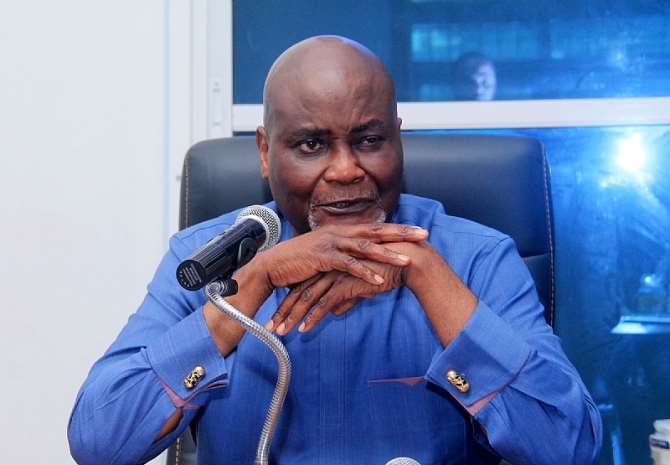The desire of the Federal Government to see that there is a complete end to hostility resulting into kidnapping, armed robbery and oil theft in the Niger Delta, is no doubt a step taken in the right direction. The programme has given the Federal Government the singular opportunity to draft persons of impeccable and unquestionable character into the system to pilot its affairs.
It is also very clear that stakeholders in the region have come to terms that the President Muhammadu Buhari-led Federal Government is not playing lip services to the overall development of the area putting into perspective the long years of negligence by previous governments inspite of efforts from stakeholders to draw the attention of the government to the region.
To further drive the programmes and policies of the government and to implement blueprint of the government in the region, Buhari brought on board a son of the soil with adequate knowledge of the region, Prof. Charles Quaker Dokubo, as Special Adviser on Niger Delta and Coordinator, Amnesty Programme where recruited ex-militants are meant to embraced the much talked about peace and enlargement in the region.
Although, the Niger Delta crisis is due to the absence of development in the region both on human and infrastructure levels, the ability of ex-militants to transition to peacetime activities by getting employed, becoming entrepreneurs, and functional civic involvement after their training in the amnesty program would go a long way in addressing the development issues.
The amnesty program was introduced in 2009 by the Nigerian government to curb violence in the region by engaging the militants. The program focused on empowerment, human and economic development that will help the ex-militants refrain from militancy and become useful and productive citizens in their various communities with the resultant aim to help restore and sustain peace in the region.
It is no doubt that the extent to which the amnesty program has addressed the underlying problems in the region including the peaceful transition of the ex-militants to ensure sustainable peace in the region. Content and thematic analysis of data was utilized. Since the programme commenced, there has been improvement in terms of the ability of the ex-militants to become productive and peaceful citizens. There is a greater need for employment of graduates of the program because it will address youth employment and education issues in the region which may, in turn, discourage violence and future militant activities, thereby enhancing a stable social and political landscape in the region.
In the light of the above, 100 days into his appointment, Prof. Charles Dokubo, gathered leaders and stakeholders in the Niger Delta, and has been able to convinced them of President Buhari’s quest to transform the region through the instrumentality of the Amnesty Programme following his sterling performance and achievements within a short period of time.
“I believe we should train people and train them in such a way that they should have qualifications that will give them jobs, and that is the direction I am going to adopt. We must have the capacity to give beneficiaries of the Amnesty Programme some qualification that will enable them to work wherever they could. It’s not only about mass education; it’s qualitative education. Let our people have quality education that will make them stand tall; that is what I want to do”, Dokubo said.
The meeting with Niger Delta leaders and stakeholders in Lagos was the hallmark of his desire to deepen peace for stability and development in the hitherto restive region. It was the first of its kind since the inception of the Amnesty Programme and preceded four others with critical stakeholders.
It is on record that besides ensuring a smooth sail for 200 delegates of the Amnesty Programme currently undergoing training in automobile at Innoson Kiara Academy, Nnewi, Anambra State, and about 559 training in agriculture at other facilities, he has put measures in place for the completion and activation of all the Vocational Training Centres under construction to fast track the training of the several beneficiaries awaiting skills acquisition. These include the Maritime Vocational Training Centre at Oboama, Rivers State; Basic Skills Vocational Training Centre in Boro Town, Kaiama, Bayelsa State, Power and Energy Vocational Training Centre in Bomadi, Delta State; Oil and Gas Vocational Training Centre, Agadagba-Obon, Ondo State, and the Agricultural Vocational Training Centre in Gelegele, Edo State. The vocational centres at Agadagba and kaiama are expected to come on stream soon, to empower ex-agitators with viable skills to become economically independent and relevant to themselves, families, communities and the nation.
Top on the priorities of Dokubo, an erudite scholar and a nuclea scientist of international repute, is the welfare of beneficiaries of the Amnesty Programme undergoing educational programmes in various tertiary institutions within and outside the country. 207 students spread across 66 institutions in 20 countries are currently studying various courses. On Thursday, July 19, he visited students sponsored by the Amnesty Programme in London and met with 47 students and recent graduates from 25 institutions in the UK at the Nigeria High Commission.
The objective of the visit was to enable him evaluate the students’ academic progress, celebrate those completing their programmes and charge the remaining ones to be good ambassadors of the Programme. He also wanted to hear directly from the students, progression in their academics and general well-being, as well as interact with the Nigeria High Commission representatives. The meeting had in attendance, the Nigeria High Commissioner, Ambassador George Adesola Oguntade; Deputy High Commissioner, Ambassador Kabiru Bala, and a representative from the Office of the Vice President of Nigeria, Prof. Yemi Osinbajo.
A pragmatic, humble and visionary administrator, Dokubo commenced his consultative drive by successfully hosting earlier in Lagos, key leaders of various camps of ex-agitators in the Niger Delta who, at the end of the novel meeting, pledged to work assiduously with the Federal Government towards deepening peace and stability in the oil-rich region to pave way for hitch free elections in 2018 and beyond. The leaders included Chief Bibopre Ajube, aka General Shoot-at-Sight; Dr. Ebikabowei Victor Ben, alias Boyloaf, and HRH Ateke Tom. Representatives of other frontline leaders of ex-agitators in the Niger Delta including Chief Government Ekpemupolo alias Tompolo, attended the meeting.
On June 7, he met with over 30 Phase One leaders of Niger Delta ex-agitators at the Abuja Sheraton Hotels and Towers in furtherance of his peace efforts, and parleyed 70 Phase Two and Three leaders the next day at same venue. He had earlier hosted the leadership of the Pan Niger Delta Forum (PANDEF), and visited a former Federal Commissioner for Information and respected Ijaw leader, Chief Edwin Clark, in his determination to deepen peace in the Niger Delta.
To surmount the inherent challenges in the programme, Dokubo, constituted a committee headed by Prof. Ayibaemi Spiff, to review operations of the Amnesty Programme. The committee’s findings include the construction of five Vocational Training/Reintegration Centres across states in the Niger Delta.
However, even when two of the centres (in Ondo and Bayelsa States) have been largely completed, none has been activated for the training of thousands of persons enrolled on the Programme that are yet to be skilled due to the failure of the Amnesty Office to pay in full the contract sums, lack of proper supervision and demand for variation by some of the contractors. Interestingly, of the 30,000 persons enlisted in the Presidential Amnesty Programme, 11,297 persons are yet to be placed in either vocational training facilities or deployed for formal education as at when Dokubo assumed office.
–
Source: https://www.thenigerianvoice.com/news/277848/special-report-the-impact-of-the-amnesty-programme-in-the-n.html

